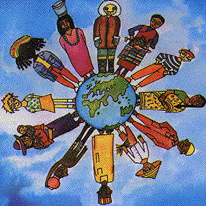 Jeremiah Owyang posted a question about how we define “Online Communities”. In referencing Jake Mckee’s post on the subject he wonders is Twitter a community?
Jeremiah Owyang posted a question about how we define “Online Communities”. In referencing Jake Mckee’s post on the subject he wonders is Twitter a community?
Before we answer that question we have to define what a “Community” is? As has been pointed out by Robin Hamman, “Community” “has dozens if not hundreds of distinct definitions”. In practice we shouold go by the most common definition that covers the specific context. If we go to the dictionary we find a definition of “a social, religious, occupational, or other group sharing common characteristics or interests and perceived or perceiving itself as distinct in some respect from the larger society within which it exists (e.g. “The Business Community”)”.
The key’s points here are:
1. Common Interests.
2. Perception of being distinct and separate.
When we examine Twitter and find that the common interest is Twitter and the activities on it, and that the perceived distinction is of those who use/get twitter and those that do not. So yes, by definition, Twitter IS a community.
That said, groups of followers within Twitter may NOT be a sub-community since they do not identify themselves as being separate from Twitter itself. We are not the “following Scoble” community.
Of course all this “definition” talk begs the question, how should we forge this new online vocabulary? Like any lexicon it will develop on its own via adoption patterns. When creating definitions I lean towards either adhering to already established meanings, or inventing new words entirely. This makes words less confusing when we use new meanings in conversation.

